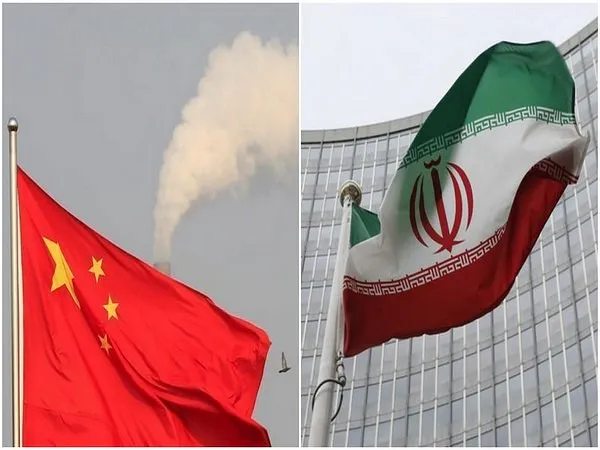Much of China’s game in the Middle East will be successful when Iran remains isolated and continues to singe from sanctions.
Optimism on reviving the Iran nuclear deal has started fading as the US, which withdrew from the agreement in 2018, is yet to get a response from Tehran on Washington’s proposal for a probe into traces of undeclared nuclear material. However, China is happy with the development, reported Al Arabiya Post.
The more Iran’s nuclear deal remains unresolved; the more Tehran remains isolated in the international arena– a perfect condition for China to suck the Middle-East country into its game plan in the Indo-Pacific region.
Already brought into the ambit of the China-dominated Shanghai Cooperation Organisation (SCO) and waiting to be included in the BRICS, Iran finds in the authoritarian regime of Beijing an ally who can help it overcome its economic crisis and end international isolation.
China is also seeing in Iran as a friend who can fulfil its two prominent goals–strategic and energy security reported Al Arabiya Post.
Chinese authorities must be thankful for the current geopolitical situation in the world as Beijing is able to easily source cheap oil from Iran and fill its oil reserves.
Despite being under sanctions, Iran has been steadily supplying a large amount of crude oil to China. According to Kpler, a Brussels-based data and analytics company, Iran exported more than 700,000 barrels a day of crude oil to China in May and June.
Chinese refiners, in view of the competitive price of Iranian oil, have sought more imports from Tehran in subsequent months.
China is a lone buyer of sanction-hit Iran in the world, accounting for more than 6 per cent of Beijing’s total oil imports. Beijing has long opposed the US and the European Union’s sanctions on Iran and Russia.
Over the years, China has also made investments in the mining and transportation sectors of Iran. This has helped Beijing in securing unhindered access to Iran’s natural gas and oil reserves.
However, since China’s interest lies in expanding its footprint in the Indo-Pacific region, Iran is eyed by Beijing for its sharing of approximately 97,860 sq km long coastal line with the Persian Gulf and its strategic positions around the Strait of Hormuz and the Bab al-Mandab Strait, reported Al Arabiya Post.
With its military base in Djibouti, China will try to ensure that these chokepoints fit into its grand strategy in the Indo-Pacific region where the US-led Quad group is strengthening its influence through military drills, vaccine diplomacy and other developmental agenda.
This year on January, 11 Iranian vessels, three Russian ships and two Chinese vessels conducted a series of joint tactical and artillery drills in the Indian Ocean.
Moreover, in late April, a Chinese military delegation headed by Minister of National Defence, Gen Wei Fenghe visited Tehran and held talks with Iranian President Ebrahim Raisi, the chief of Armed Forces General Staff, the defence minister, and the top officials of the Islamic Revolutionary Guard Corps. Following the talks, both sides agreed to expand bilateral cooperation in joint military drills, exchange of strategies and training.
China and Iran have enhanced their military ties in recent years, amid tensions with the US. In January, both countries along with Russia held joint naval drills in the Indian Ocean, the third since 2019.
Last year China and Iran signed a 25-year cooperation agreement aimed at strengthening economic and political relations.
China has started to step into the US shoes in the Middle East by forging a strategic partnership with Iran causing concern in Washington as Chinese money will invariably weaken the effectiveness of American sanctions against Iran, which crippled its economy back in 2018.

